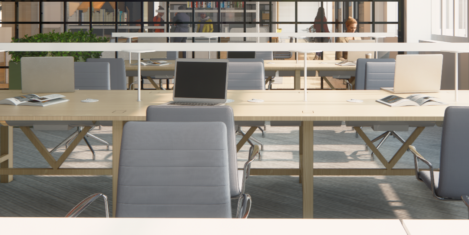September 8, 2023
The words we borrow from other languages to talk about work and wellbeing
 We are prone to borrow nuanced words from other languages to express ideas that otherwise need some explaining in English. This includes the way we talk about work, and especially the way we talk about wellbeing and happiness. Perhaps most famously, there was a lot of talk about hygge a couple of years ago. A straight dictionary translation of hygge would be something like cosiness, but the word also embodies an emotion and an approach to life that embraces a certain degree of slowness and an enjoyment of the present moment. It’s no coincidence that it became modish in a distracted and hurried world. Although the concept is usually referred to as Danish, the word itself is shared with Norwegian, which also offers us the word koselig, which means cosiness but also hints at it being best enjoyed at a fireside. (more…)
We are prone to borrow nuanced words from other languages to express ideas that otherwise need some explaining in English. This includes the way we talk about work, and especially the way we talk about wellbeing and happiness. Perhaps most famously, there was a lot of talk about hygge a couple of years ago. A straight dictionary translation of hygge would be something like cosiness, but the word also embodies an emotion and an approach to life that embraces a certain degree of slowness and an enjoyment of the present moment. It’s no coincidence that it became modish in a distracted and hurried world. Although the concept is usually referred to as Danish, the word itself is shared with Norwegian, which also offers us the word koselig, which means cosiness but also hints at it being best enjoyed at a fireside. (more…)









 Vulnerable narcissistic leaders are especially likely to make employees irritated during crisis situations, reveals new research from NEOMA Business School. Birgit Schyns, Distinguished Professor of People & Organisations at NEOMA, and co-authors analysed survey data on workers in the UK education sector during the COVID-19 pandemic. Respondents reported their levels of irritation and Coronavirus-related worry in five weekly surveys, as well as their experiences with vulnerable narcissistic leadership – an unstable form of leadership characterised by covert feelings of entitlement.
Vulnerable narcissistic leaders are especially likely to make employees irritated during crisis situations, reveals new research from NEOMA Business School. Birgit Schyns, Distinguished Professor of People & Organisations at NEOMA, and co-authors analysed survey data on workers in the UK education sector during the COVID-19 pandemic. Respondents reported their levels of irritation and Coronavirus-related worry in five weekly surveys, as well as their experiences with vulnerable narcissistic leadership – an unstable form of leadership characterised by covert feelings of entitlement. 























September 5, 2023
Breaking eggs and a two thousand year quest to make the most of each day
by Mark Eltringham • Comment, Flexible working, Workplace